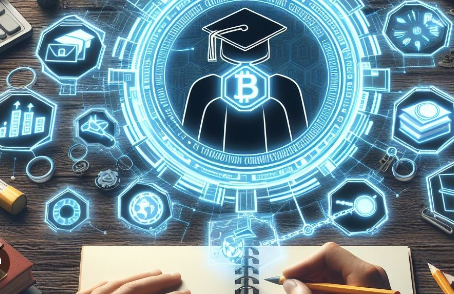
In today’s education landscape, maintaining academic integrity is becoming increasingly challenging. The rise of digital tools and online content has made plagiarism more prevalent, highlighting the importance of ensuring the originality of academic work. Blockchain technology presents a promising solution for enhancing academic integrity and significantly reducing plagiarism.
What is Blockchain, and Why Does It Matter?
Blockchain is a decentralized, transparent ledger that stores data across multiple computers. Unlike traditional databases, information stored on a blockchain is immutable, meaning it cannot be altered or deleted without leaving a trace. This transparency and security make it ideal for tackling academic dishonesty.
Real-Time Verification of Academic Work
Blockchain allows for real-time verification of documents, assignments, and research papers. Once a piece of work is submitted on a blockchain network, its authenticity can be instantly checked against previously recorded academic content. This reduces the chances of students or researchers using plagiarized material.
With blockchain, each piece of work can be timestamped, creating a permanent record of its submission. This timestamping ensures that no one can retroactively claim ownership or modify the content without notice.
Enhanced Peer Review Process
Blockchain can revolutionize the peer review process by providing transparency and accountability. Reviews, feedback, and changes can be tracked on the blockchain, ensuring that the entire academic process is visible. This discourages unethical behavior such as biased reviews or manipulated feedback. Moreover, the reviewers’ identities can be kept anonymous while still being verifiable, fostering an unbiased environment.
Smart Contracts for Plagiarism Detection
Using smart contracts, educators can automate plagiarism detection. Smart contracts are self-executing contracts with terms written directly into code. These contracts can be programmed to flag and halt submissions that fail to meet originality standards. For example, if a research paper contains a certain percentage of copied text, the smart contract could automatically reject it until revisions are made. This eliminates the need for manual plagiarism checks and provides instant feedback to the student.
Securing Academic Credentials
Another crucial benefit of blockchain is securing academic credentials. Once diplomas, certificates, or degrees are issued, they can be stored on the blockchain. This reduces the chances of forging academic qualifications, as employers or institutions can easily verify the authenticity of the credentials. A student’s entire academic journey can be recorded and verified, ensuring that their achievements are both legitimate and transparent.
Reducing Contract Cheating
Contract cheating where students pay others to complete their work has become a growing issue. Blockchain technology can mitigate this by verifying the identity of the person submitting the work through cryptographic signatures. Every submission will be linked to a student’s identity on the blockchain, making it much harder for students to outsource assignments without being detected.
Blockchain in Action
In Nigeria, blockchain technology is already being explored in the educational sector. For instance, some universities are piloting blockchain to verify degrees and prevent the issuance of fake diplomas. This provides real-time access to genuine credentials for employers and international institutions, safeguarding the integrity of Nigeria’s academic system. By adopting similar strategies, institutions can further promote transparency in student submissions and research work.
Conclusion
Blockchain technology holds immense potential in enhancing academic integrity and reducing plagiarism. By providing transparent verification, automating plagiarism detection, and securing academic credentials, blockchain ensures a trustworthy and ethical academic environment. As educational institutions look to adopt more robust solutions, blockchain could become the key to maintaining integrity in an increasingly digital world.
Ready to learn more? Join the conversation and explore how blockchain is shaping the future of education. Leave a comment or share your thoughts below!








